
r2: a morass of disjointed streams of consciousness
🤷♂️
Take this excellent paper on Zero Sum Thinking—simple in retrospect, just an excellent idea!
Graph shows rise in zero-sum thinking with Millennial and later U.S. birth cohorts.
Congrats to @s-stantcheva.bsky.social

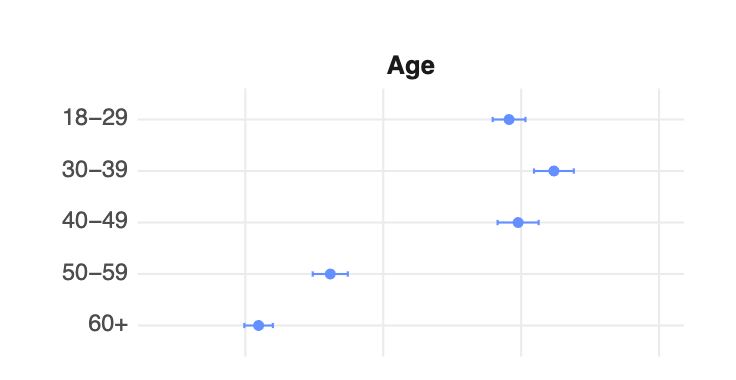
Take this excellent paper on Zero Sum Thinking—simple in retrospect, just an excellent idea!
Graph shows rise in zero-sum thinking with Millennial and later U.S. birth cohorts.
Congrats to @s-stantcheva.bsky.social
devdatalab.org/publication-...
And you can learn more about our paper on judicial bias here: devdatalab.org/judicial-bias
4/
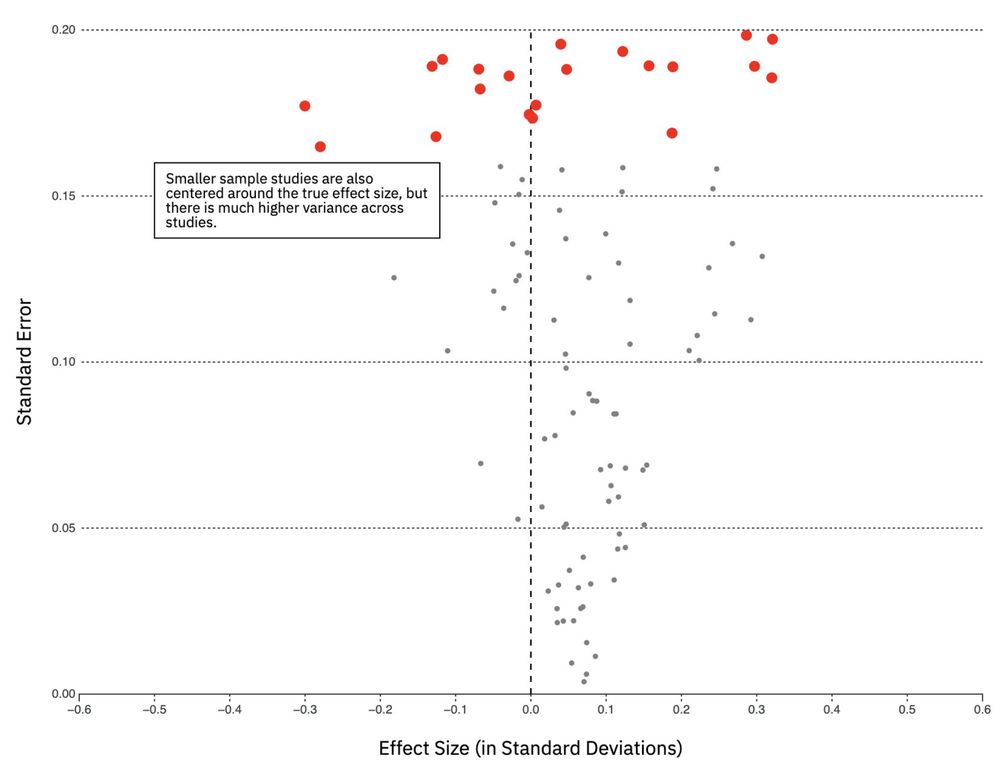
devdatalab.org/publication-...
And you can learn more about our paper on judicial bias here: devdatalab.org/judicial-bias
4/
The left graph is a simulation of publication bias. The black points in the right graph are past studies on ingroup bias. 3/
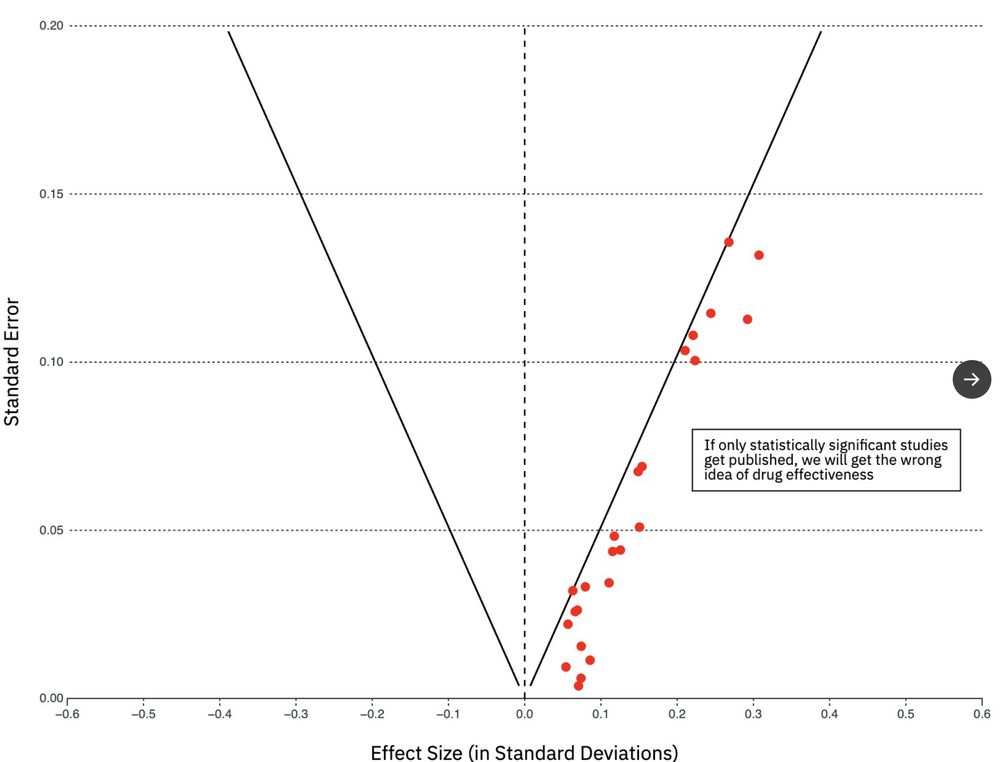

The left graph is a simulation of publication bias. The black points in the right graph are past studies on ingroup bias. 3/
Statistically significant estimates are outside the solid lines — but point mass should be similar just on either side of the line. 2/
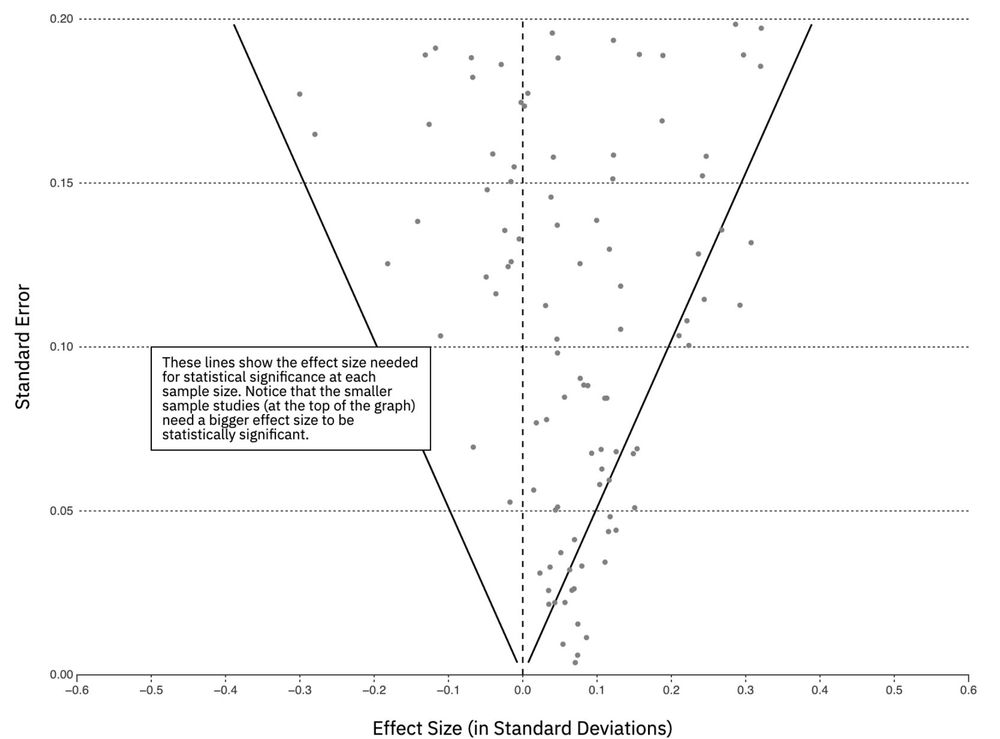
Statistically significant estimates are outside the solid lines — but point mass should be similar just on either side of the line. 2/
This paper has one of the two best graphs I've ever made — on publication bias in the judicial bias literature.
Black circles are prior studies on ingroup bias. Explanation in 🧵👇🏻

This paper has one of the two best graphs I've ever made — on publication bias in the judicial bias literature.
Black circles are prior studies on ingroup bias. Explanation in 🧵👇🏻

via @natehilger.bsky.social kiddingaround.substack.com/p/what-we-le...
Black (2018): direct.mit.edu/rest/article...

via @natehilger.bsky.social kiddingaround.substack.com/p/what-we-le...
Black (2018): direct.mit.edu/rest/article...
Because we don't have a PhD program, you can get a lot of time with faculty here.
Also it's in New Hampshire ⛷️🚵♂️🏔️🛶
Link below, deadline is in 2 weeks, please share!
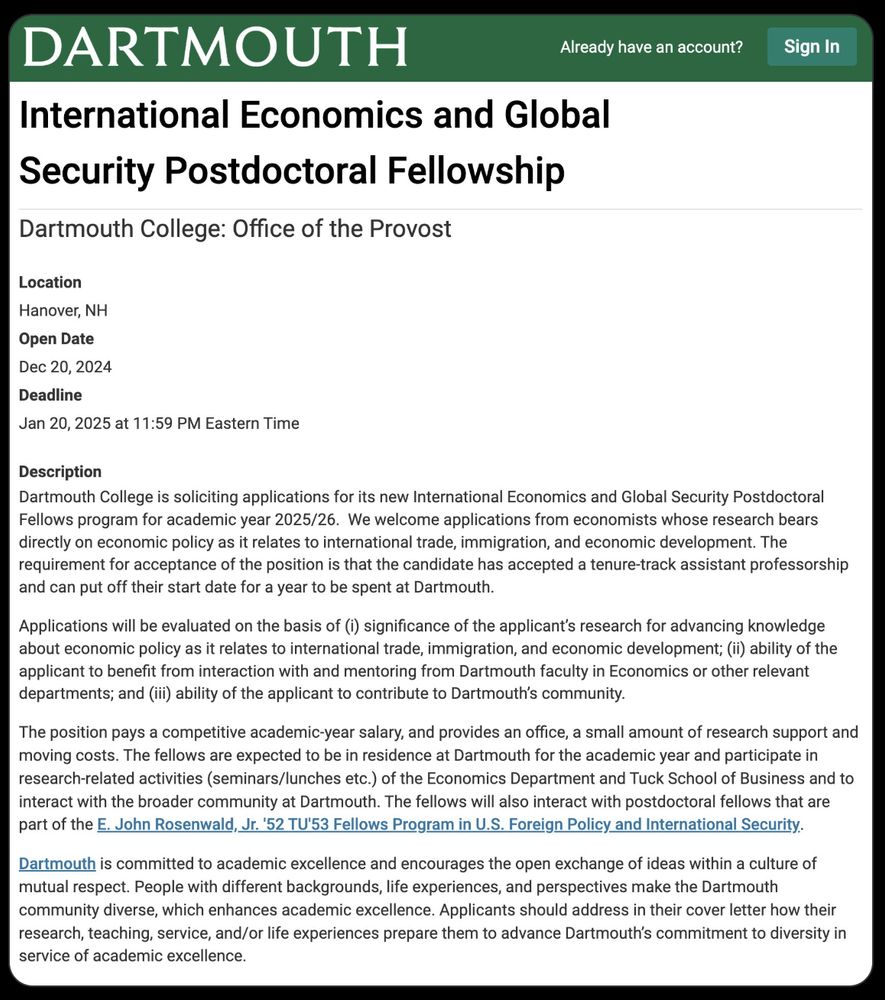
Because we don't have a PhD program, you can get a lot of time with faculty here.
Also it's in New Hampshire ⛷️🚵♂️🏔️🛶
Link below, deadline is in 2 weeks, please share!
Suggests % spending on healthcare tends to rise with GDP, and in these terms U.S. spending is just normal.
The source is: some blogger
randomcriticalanalysis.com/why-conventi...

Suggests % spending on healthcare tends to rise with GDP, and in these terms U.S. spending is just normal.
The source is: some blogger
randomcriticalanalysis.com/why-conventi...

No preposterous IV, no incomprehensible structural black box, there is just a new fact about the world.
If the descriptive work is done well — and it is not easy — the fact permanently enters everyone's headspace and must be contended with.
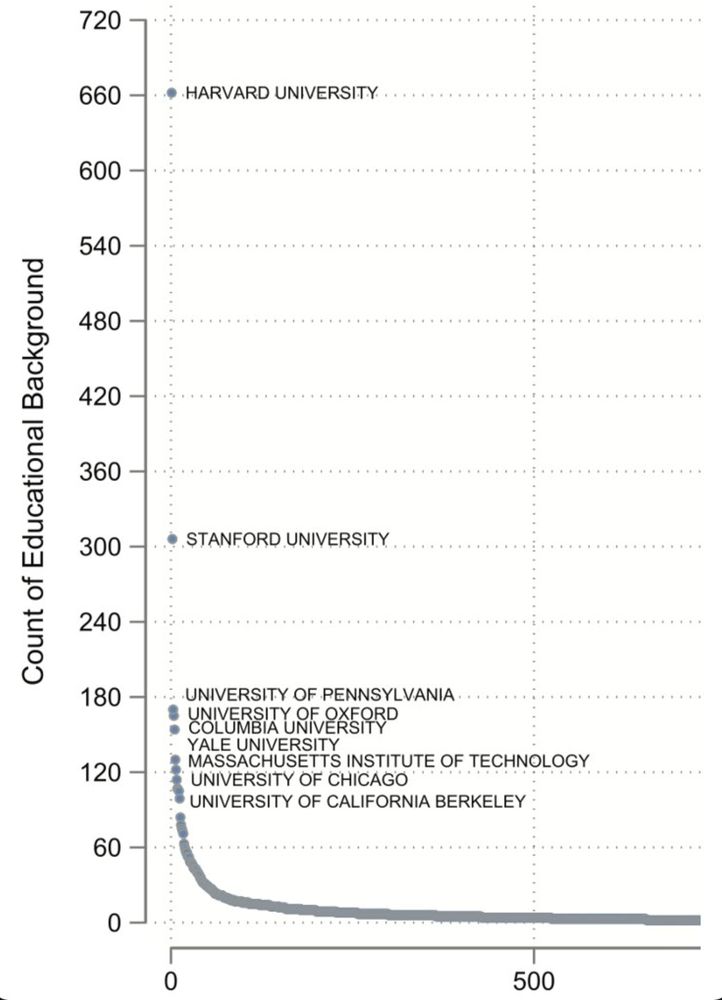
No preposterous IV, no incomprehensible structural black box, there is just a new fact about the world.
If the descriptive work is done well — and it is not easy — the fact permanently enters everyone's headspace and must be contended with.
ricardosalasdiaz.com/jmp
12/12

ricardosalasdiaz.com/jmp
12/12
Seth Zimmerman's paper finds that elite schools in Chile get people into elite jobs — but only for boys from private schools!
Zero effects of elite education on men who went to public schools and on women! 11/N
t.co/Ikvv5uyBzV

Seth Zimmerman's paper finds that elite schools in Chile get people into elite jobs — but only for boys from private schools!
Zero effects of elite education on men who went to public schools and on women! 11/N
t.co/Ikvv5uyBzV

t.co/DXwDCWMsGu

t.co/DXwDCWMsGu
The U.S. is 2nd place for nationals of every non-U.S. country, with some notable outliers — 34% of elite Brazilians went to U.S. colleges, 36% of elite Indians. 8/N

The U.S. is 2nd place for nationals of every non-U.S. country, with some notable outliers — 34% of elite Brazilians went to U.S. colleges, 36% of elite Indians. 8/N
But for country leadership (central bankers and heads of state), the distribution is much more mixed, and Oxford edges out Harvard. (Yale still DNF)

But for country leadership (central bankers and heads of state), the distribution is much more mixed, and Oxford edges out Harvard. (Yale still DNF)
Friends, the data points for Yale are not even high enough to get labeled. If there is a #2, it is Stanford.
5/N

Friends, the data points for Yale are not even high enough to get labeled. If there is a #2, it is Stanford.
5/N


Corporate elites: CEO and board
IO: World Bank, IMF, Basel Committee, etc
National Elites: Head of state & central banker
3rd sector: think tanks 2/N

Corporate elites: CEO and board
IO: World Bank, IMF, Basel Committee, etc
National Elites: Head of state & central banker
3rd sector: think tanks 2/N
In a word: Harvard.
Fully 10% of global elites went to Harvard. Elite US schools are over-represented (23% IvyPlus), but nobody comes close to Harvard.
🧵
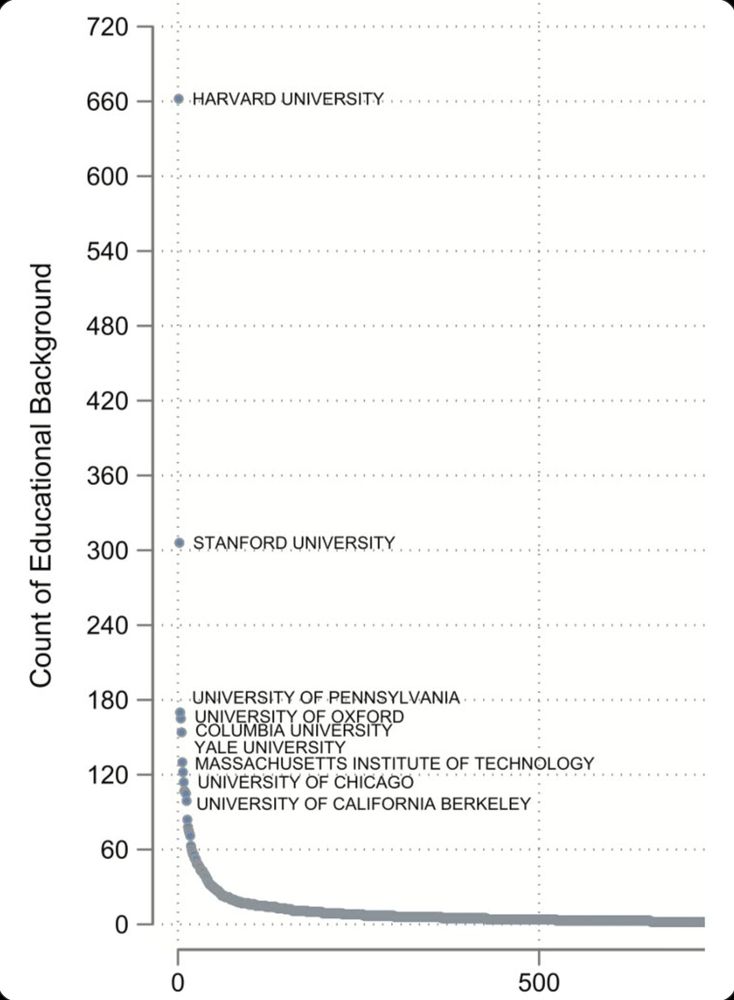
In a word: Harvard.
Fully 10% of global elites went to Harvard. Elite US schools are over-represented (23% IvyPlus), but nobody comes close to Harvard.
🧵




